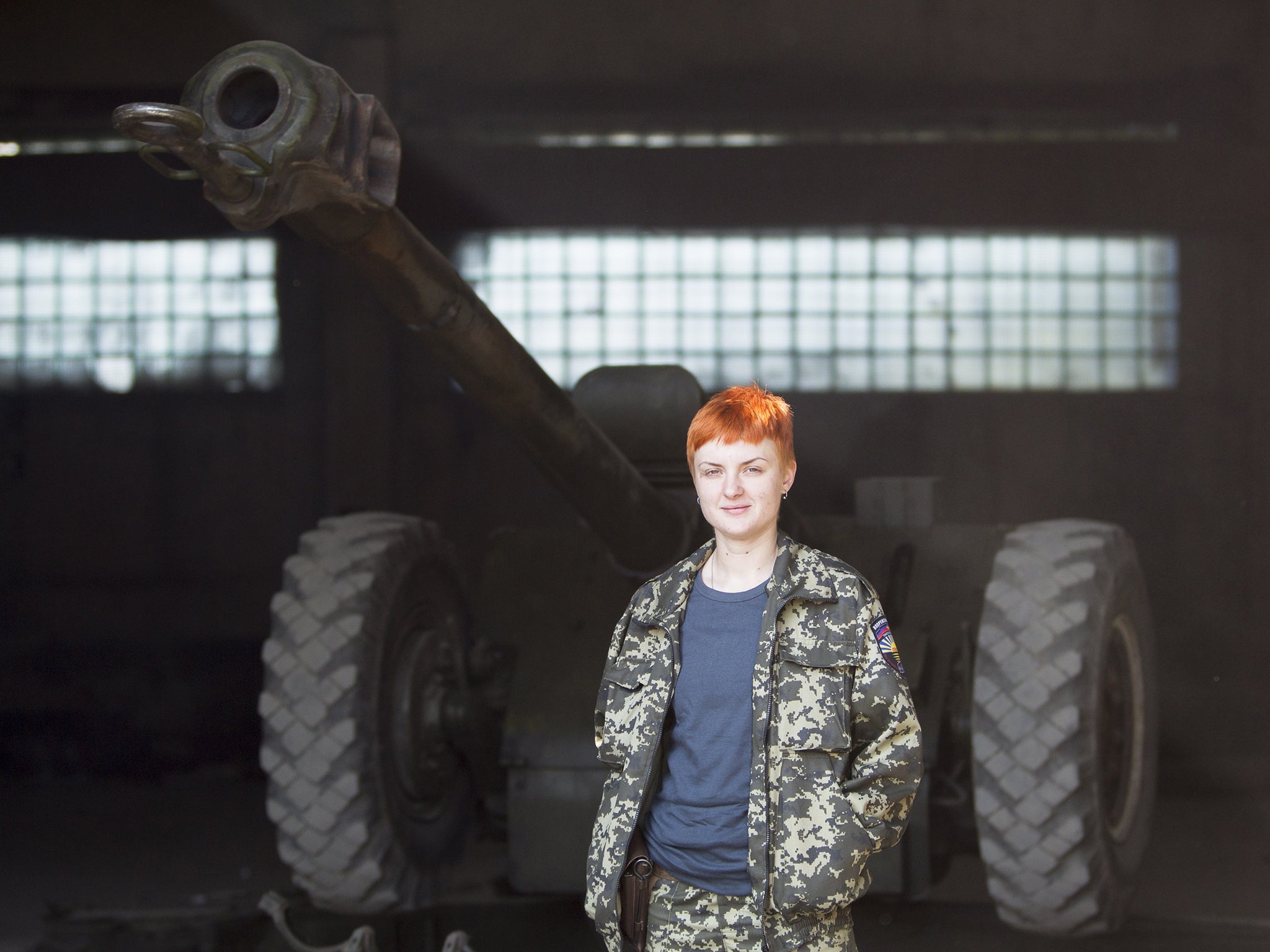Ukraine crisis: Meet the women who have taken up arms on both sides of the conflict
A casino croupier, a petrol-station attendant and a nurse have all taken up arms in the struggle - earning the respect of their male comrades

Your support helps us to tell the story
From reproductive rights to climate change to Big Tech, The Independent is on the ground when the story is developing. Whether it's investigating the financials of Elon Musk's pro-Trump PAC or producing our latest documentary, 'The A Word', which shines a light on the American women fighting for reproductive rights, we know how important it is to parse out the facts from the messaging.
At such a critical moment in US history, we need reporters on the ground. Your donation allows us to keep sending journalists to speak to both sides of the story.
The Independent is trusted by Americans across the entire political spectrum. And unlike many other quality news outlets, we choose not to lock Americans out of our reporting and analysis with paywalls. We believe quality journalism should be available to everyone, paid for by those who can afford it.
Your support makes all the difference.Before fighting broke out in eastern Ukraine, Irina was a croupier in a casino who never dreamt of taking up arms.
Now she is gambling with her life. Using the nom de guerre “Gaika”, a cartoon character that translates as Gadget, she has joined an artillery unit in a pro-Russian separatist group fighting government forces.
Her unit, based outside her home town of Donetsk, the main rebel stronghold in eastern Ukraine, is part of a rebel militia called Oplot and includes six women – herself, three medics, a fighter and a reconnaissance specialist.
“When your home is being destroyed, everything that is dear to you, friends, work... It’s about character. Girls who go into combat are real Russian women,” she said, explaining why she joined up.
It has proved tough, but she has no regrets.
“The noise is what I will remember most,” she said. “Painful memories go away. We try to focus on the positive, joyful, meeting friends. There are so many friends around now; the war is bringing people closer.”
The women come from all walks of life. A comrade in arms, who gave her name only as Irina for fear of retribution after the conflict, used to work at a petrol station in the town of Gorlovka. “The fear is always there. But I was more afraid when I was sitting at home and hearing shells fly by. Then I got used to the sound,” she said.
Irina has given up many home comforts, but not all: “War is war but somehow I still need to wear make-up.”
Their commander, Yesaul, a Cossack from the nearby Luhansk region, admitted: “I had doubts before allowing women in. But now I actually have more trust in them than in men. Women don’t drink and I am sometimes seriously worried seeing my men’s condition when they are relaxing after a mission.”
Women are also among the volunteers fighting on the other side of the conflict. About 10 women have joined the 150-strong Shakhtarsk Battalion, which fights alongside government forces, and is based in an oak grove about 30 miles from the city of Dnipropetrovsk, 150 miles from Donetsk. The unit is recovering from a battle around the town of Ilovaysk in which government forces were encircled and suffered heavy losses. A 20-year-old nurse called Maria, who was among those who came under fire, said about 30 of the battalion were killed or wounded.
“I didn’t want to go into, let’s say, humanitarian aid because that makes no real sense if there is no one to drag away our wounded lads. Many die because there was no one to do that. I do that,” she said.
She said the men and woman “live, eat and fight together”. In combat, she carries only a pistol and a medical bag so that her hands are free to help the wounded.
Her comrade Alyona, 21, joined up after taking part in anti-government protests in the capital, Kiev, that culminated in the removal of a president sympathetic to Moscow. First she joined the National Guard. “That was roadblocks and checking documents. I wanted to fight,” she said. “This is just the beginning; the so-called ceasefire is just a pause. I want to fight until the end.”
Female fighters on both sides said the men in their units treat them as equals. They have little respect for men who have not taken up arms.
“If a man has come to fight, he is a man. Real men fight,” Gaika said. “Those sitting in the city and sipping beer should put on skirts. It’s shameful.”
Fighters on both sides expect a long conflict, despite the fragile truce. On Wednesday, at least one person was killed and three wounded when an artillery shell hit a Donetsk shopping centre.
A red-haired rebel fighter called Alla said: “So many people, children and women, were killed on our side. Now I don’t want a ceasefire.”
She has been with the separatist rebels from the start of the conflict, first serving as a cook. She fired her first training shots at a duck on a river and now has a pistol and an assault rifle.
“Maybe I won’t kill many of them, but, if someone is coming, I will get him,” she said.
Reuters
Join our commenting forum
Join thought-provoking conversations, follow other Independent readers and see their replies
Comments